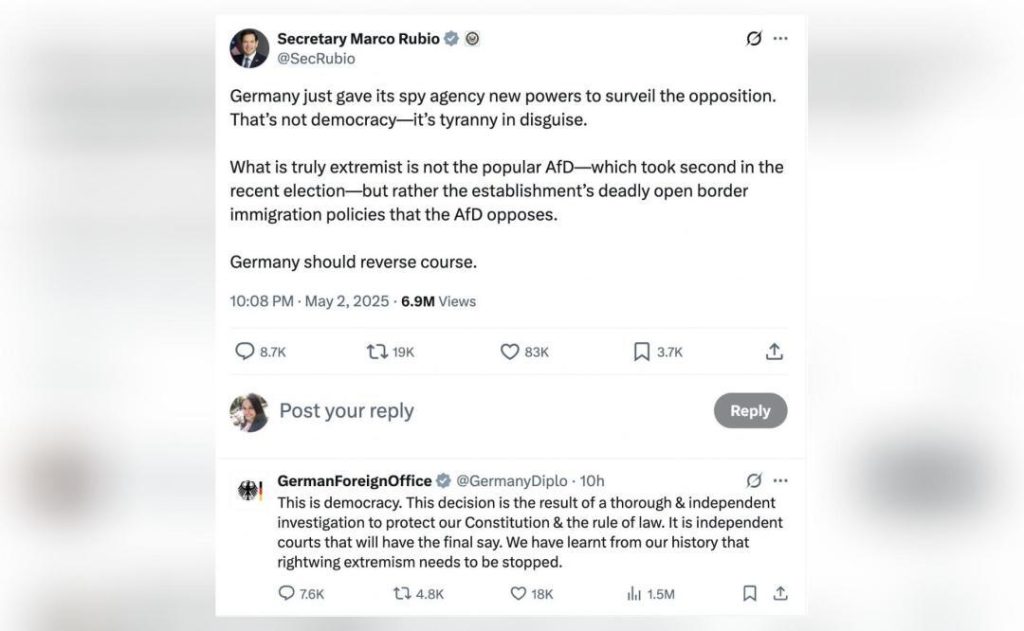
US Secretary of State Marco Rubio and German Govt Clash Over AfD Party’s ‘Extremist’ Tag
A heated debate has erupted between the United States and Germany over the classification of the far-right Alternative for Germany (AfD) party as “extremist” by Germany’s domestic intelligence agency. US Secretary of State Marco Rubio has accused Germany of enabling “tyranny in disguise” by labeling the AfD party as extremist, sparking a clash with the German Foreign Ministry.
The controversy began when Germany’s domestic intelligence agency, the Federal Office for the Protection of the Constitution (BfV), designated the AfD party as “extremist” due to its growing influence and worrying rhetoric. The BfV claimed that the party’s ideology and actions posed a threat to the country’s democratic order and constitution.
However, US Secretary of State Marco Rubio took to social media to express his strong disagreement with the German government’s decision. In a series of tweets, Rubio accused Germany of “enabling tyranny in disguise” and questioned the country’s commitment to democratic values. He claimed that the AfD party was not extremist, but rather a legitimate political force that represented the concerns of many Germans.
Rubio’s remarks were met with a swift response from the German Foreign Ministry, which defended the BfV’s decision as a necessary measure to protect the country’s constitution. The ministry stated that the designation was the result of a thorough investigation and was based on evidence that the AfD party’s ideology and actions posed a threat to democracy.
“The decision regarding AfD is a result of thorough investigations to protect our Constitution,” the German government said in a statement. “We will continue to monitor the party’s activities and take necessary measures to ensure the protection of our democratic system.”
Rubio’s criticism of the German government’s decision has sparked a debate about the definition of extremism and the role of political parties in democratic societies. Some have questioned whether the AfD party’s views and actions are truly extreme, or whether they are rather a reflection of the growing discontent among many Germans with the country’s current political and economic situation.
The AfD party, which was founded in 2013, has gained significant traction in recent years, particularly among disillusioned voters who feel that traditional parties have failed to address their concerns. The party’s platform is built on a mix of economic, social, and cultural issues, including opposition to immigration, criticism of the European Union, and support for traditional values.
While some have characterized the AfD party as extremist, others have argued that its views are a legitimate expression of political dissent and that the party’s growing popularity is a reflection of the country’s deep-seated problems.
The controversy has also raised questions about the role of the US government in shaping the political discourse in Germany. Rubio’s criticism of the German government’s decision has been seen by some as an attempt to influence the country’s internal political affairs.
In conclusion, the clash between US Secretary of State Marco Rubio and the German Foreign Ministry over the AfD party’s “extremist” designation highlights the complex and delicate nature of political discourse in modern democracies. While the US government has a right to express its opinions on political issues in Germany, it is also important to respect the country’s sovereignty and the decisions made by its government.
The controversy serves as a reminder of the importance of engaging in respectful and constructive dialogue, even in the face of disagreement. It is only through open and honest communication that we can hope to build bridges between nations and promote the values of democracy and freedom that we all hold dear.



